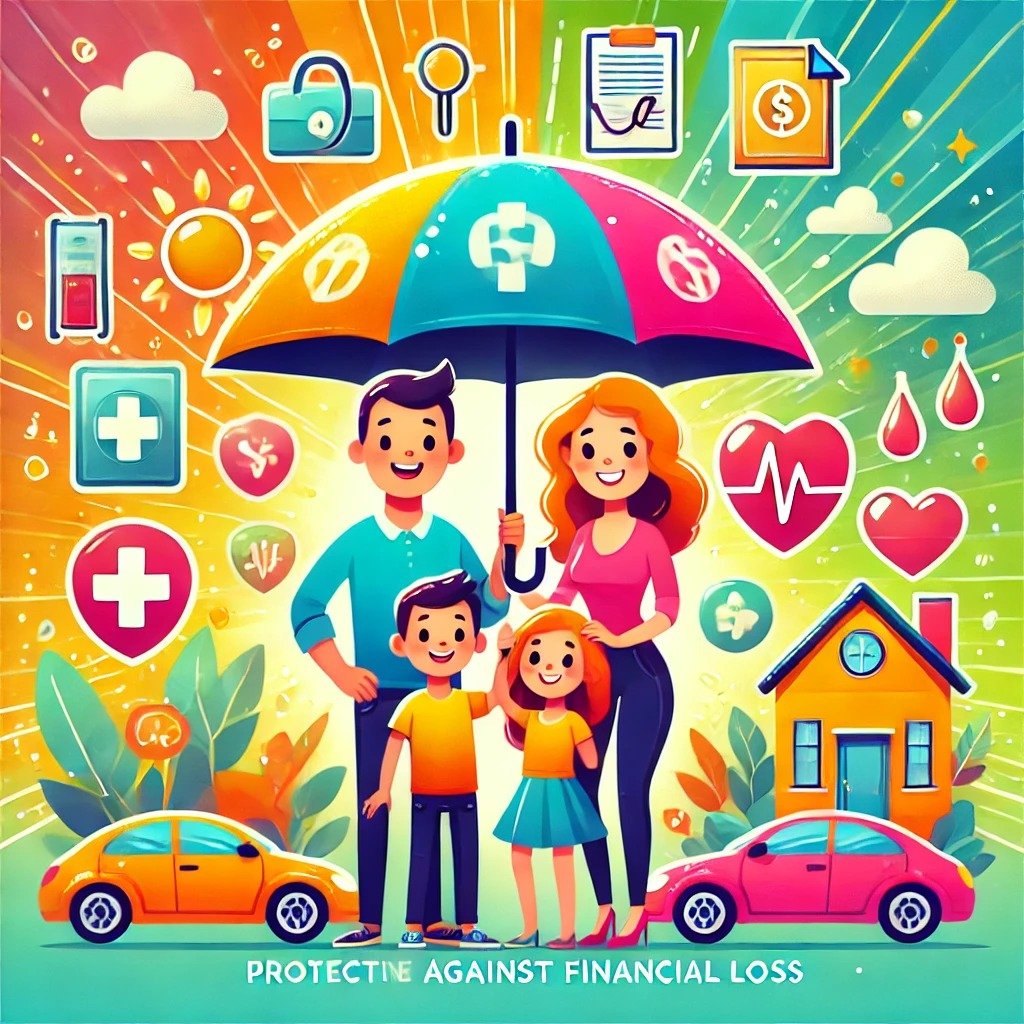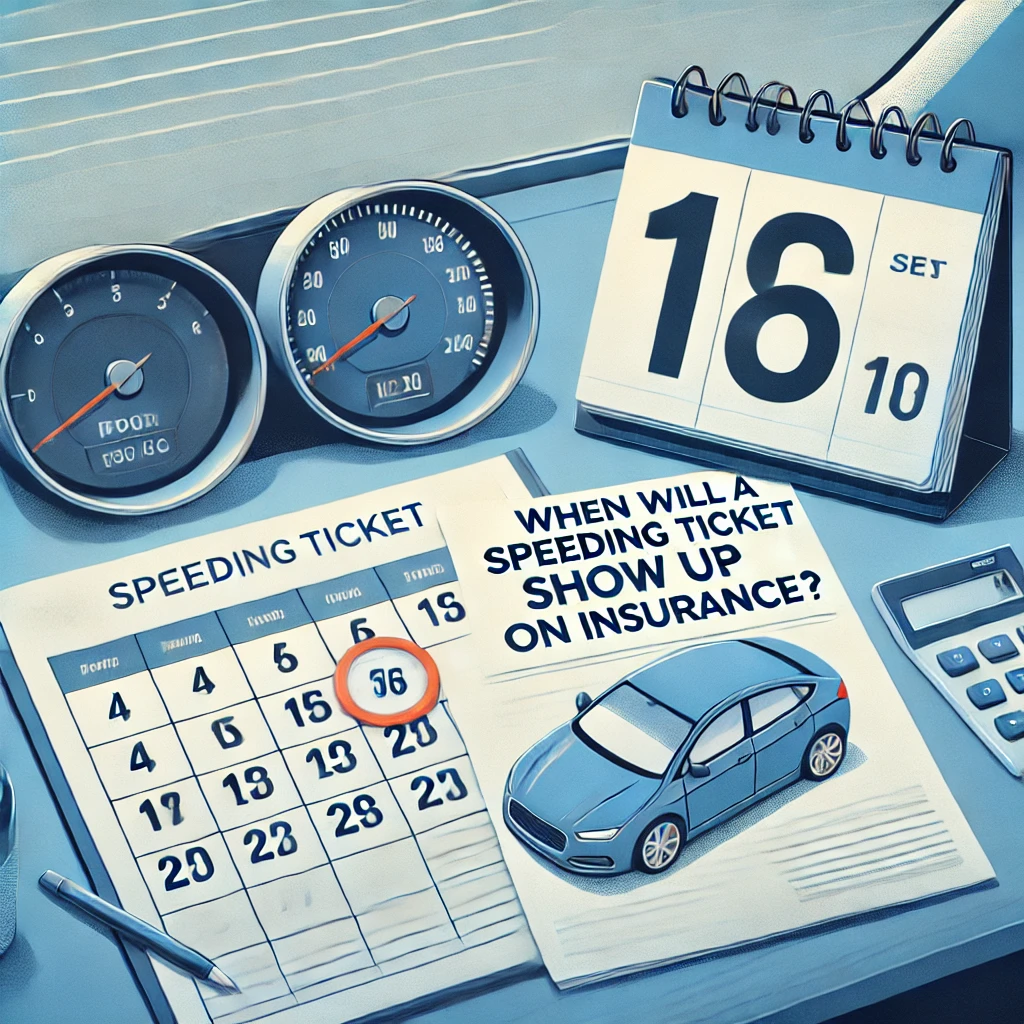Speeding tickets are a common traffic violation, but many drivers wonder: when will a speeding ticket show up on insurance? This crucial question affects how you manage your insurance rates, premiums, and driving record. Understanding how a speeding ticket impacts your car insurance can help you stay prepared and minimize potential costs. This article dives into everything you need to know about the timing and effects of speeding tickets on insurance policies.
Speeding Ticket Affect Your Insurance Rates and Costs
Speeding tickets can significantly impact your car insurance rates and overall insurance costs. Understanding when a speeding ticket shows up on insurance is crucial for drivers looking to manage their insurance premiums effectively.
How Speeding Ticket Affect Your Insurance
A single speeding ticket might increase your insurance rates. Insurance companies review your driving record to determine the risk of insuring you. A speeding ticket on your driving record signals risky behavior, which may lead to higher insurance rates.
- First Speeding Ticket: If it’s your first speeding ticket, the increase in your insurance may be minimal. However, the severity of the speeding violation can play a role in determining the exact impact.
- Ticket on Your Driving Record: A ticket will likely appear on your driving record and stay there for three years or more, depending on your state’s regulations.
Insurance Rates and Costs: Speeding or Parking Tickets
While parking tickets generally do not affect your insurance, speeding tickets do. Insurance providers assess the impact of speeding tickets on car insurance costs. Drivers with a speeding ticket may see an insurance increase due to perceived higher risks.
- Higher Insurance Rates: Many insurance companies offer different rates based on your driving history. A single speeding ticket can lead to higher insurance rates.
- States Forbid Insurance Companies: Some states forbid insurance companies from considering minor speeding violations, but most don’t.
How Long Does a Speeding Ticket Stay on Your Record?
A speeding ticket will likely stay on your driving record for three years or more. This timeframe can vary by state and insurance provider policies.
- Driving Record for Three Years: Insurance companies review your motor vehicle record to assess your risk. A history of tickets can make it harder to get affordable car insurance.
- Ticket Off Your Record: After the specified period, the ticket may no longer affect your insurance rates.
Insurance Rates and Auto Insurance After a Speeding Ticket
A speeding ticket show up on insurance can significantly affect your insurance rates, as most auto insurance companies view it as a sign of risky driving behavior. On average, car insurance premiums increase by about 20-30% due to a speeding ticket, depending on your provider and driving history. This increase emphasizes the importance of maintaining a clean record to secure affordable coverage car insurance.
How Insurance Rates Change After a Speeding Ticket
When a speeding ticket shows up on insurance, you might notice an increase in your insurance premium. Licensed insurance carriers adjust rates based on traffic violations.
Car Insurance Rate Increases and Speeding Tickets
Car insurance companies often raise premiums for drivers convicted of a speeding violation. The cost of car insurance can rise significantly depending on the severity of the speeding violation.

Impact on Auto Insurance and Auto Insurance Rates
The impact on your car insurance depends on your driving record and the number of tickets you’ve received. Two or more speeding tickets can result in even higher auto insurance rates.
Much Does a Speeding Ticket Increase Costs?
On average, a single speeding ticket can increase your car insurance costs by 20-30%. Comparing auto insurance quotes can help you find better rates.
Car Insurance After a Speeding Ticket
After receiving one speeding ticket, you may notice an increase in your car insurance premiums at your next policy renewal. Many drivers seek a new insurance policy to offset the higher costs, but your traffic ticket will still be a factor for most insurers. It’s important to compare quotes to find the best coverage and rates for your insurance needs.
What Happens to Car Insurance After a Speeding Violation?
Receiving a speeding ticket might affect your car insurance coverage and rates. Car insurance coverage may remain the same, but premiums could increase.
Pay for Car Insurance with Increased Rates
After getting a speeding ticket, you may face higher costs. Reputable insurance carriers provide detailed explanations of why your premiums increase.
Vehicle Insurance Costs Post-Speeding Ticket
Drivers convicted of speeding can expect to see an increase in vehicle insurance premiums. Affordable car insurance may still be possible by shopping around.
Tips to Save on Car Insurance After a Violation
To keep your insurance affordable, compare auto insurance and seek discounts. Many insurance companies offer savings for bundling homeowners or renters insurance with auto insurance.
Driving Record and Its Role in Insurance Costs
Your driving record plays a crucial role in determining your insurance costs, as insurers use it to assess your risk level. A speeding or parking ticket can stay on your record for three to five years, impacting your rates during that period. Regularly reviewing your record ensures accuracy and helps you plan for any potential changes in your premiums.
Importance of Maintaining a Clean Driving Record
A clean driving record helps you qualify for the best car insurance rates. Speeding tickets affect insurance negatively, so avoiding violations is crucial.
Speeding Ticket Show Up On Insurance Reports: Timing Matters
Speeding ticket show up on insurance reports shortly after the ticket is processed. Insurance providers review your record during policy renewals.
Speeding Ticket Show on Your Record: How It Affects Rates
When a ticket appears on your driving record, it impacts your car insurance premium. Insurance companies may increase rates based on the violation.
Managing a Speeding Ticket Show Up on Insurance?
To manage the increase in your car insurance rates after a ticket, consider defensive driving courses that may qualify you for discounts. Additionally, bundling policies or raising deductibles can lower your premiums without sacrificing coverage. The insurance industry offers various programs to help drivers maintain affordable rates despite minor infractions.
Do Insurance Rates Go Up After a Speeding Violation?
Yes, insurance rates often go up after a speeding ticket. The increase in your insurance depends on the insurance industry’s risk assessment.
Insurance After a Ticket: Options to Consider
Drivers with a speeding ticket should explore new car insurance policies or ask their current insurance provider for auto insurance discounts.
Compare Auto Insurance to Find Cheap Insurance Options
Comparing car insurance quotes helps you save on your car insurance. Affordable car insurance is achievable even after a speeding ticket.
Automobile Insurance Rates and How to Manage Them
Managing automobile insurance rates involves maintaining a clean record, paying the ticket promptly, and choosing insurance coverage wisely.
FAQ’s Of Speeding Ticket Show Up on Insurance:
How soon does a speeding ticket show up on insurance?
A speeding ticket typically shows up on insurance during the next policy review or renewal period.
How much does a speeding ticket Show Up on Insurance affect insurance rates?
A single speeding ticket show up on incurance can increase insurance premiums by 20-30%, depending on the severity of the violation.
Can I find affordable car insurance after a speeding ticket show up on insurance?
Yes, by comparing auto insurance quotes and seeking discounts, you can find affordable options.
Does a speeding ticket stay on your driving record forever?
No, it usually stays on your driving record for three years but can vary by state.
Do all insurance companies increase rates after a speeding ticket?
Not all insurance companies increase rates, but most adjust premiums based on driving history.

